
12 Most Advanced Countries In The World In 2024
In the shadow of society's growing needs and capabilities, the importance of technological advancement increases exponentially. The diversity of these 12 countries' strengths is evidence of the global cooperation necessary to achieve modern wonders. In 2024, the most advanced country in the world is South Korea, followed by the United States and Denmark. The ranking, sourced from Global Finance Magazine, evaluates each country based on the percentage of internet and LTE users, their collective knowledge and capacity for innovation, and the average GDP allocated to research and development.
The 12 Most Advanced Countries in the World
| Ranking | Country | Score |
|---|---|---|
| 1 | South Korea | 6.63 |
| 2 | United States | 4.94 |
| 3 | Denmark | 4.79 |
| 4 | Switzerland | 4.68 |
| 5 | Israel | 4.1 |
| 6 | Finland | 3.94 |
| 7 | Netherlands | 3.79 |
| 8 | Sweden | 3.76 |
| 9 | Norway | 3.59 |
| 10 | Singapore | 3.5 |
| 11 | United Kingdom | 3.49 |
| 12 | Belgium | 3.42 |
1. South Korea

South Korea is renowned as a global leader in technology, excelling in internet access, innovation, and research and development. Its population is highly tech-literate, driving demand and creating a fertile environment for cutting-edge technologies like artificial intelligence and robotics to flourish. The government's substantial investment in industry research fuels the creation of innovative tools and solutions.
The country's rapid industrial growth in recent decades established a strong emphasis on education and scientific progress, fostering a culture of constant advancement. Major technology companies like Samsung and LG, as well as telecommunications leaders SK Telecom and KT Corporation, are prime examples of South Korea's dedication to technology and reinforce its position as a global technology powerhouse.
2. USA

The United States, ranked second in advancement, is known for its history of scientific breakthroughs and ambitions. The USA has been at the center of the tech world for its discoveries in the Manhattan project, lunar landing, and gene-sequencing during the last century. Top-tier institutions like MIT, Stanford, and Harvard cultivate skilled experts and pioneering studies, giving rise to companies like Apple, Google, and Microsoft that dominate the global tech scene.
By throwing a hefty 3.46% of its GDP to research and development, the United States consistently supports cutting-edge technology and larger-than-life ideas. This support has yielded advancements such as the Mars Rover missions, the development of the CRISPR-Cas9 gene-editing technology, and the expansion of renewable energy infrastructure. From the first transcontinental railroad in 1869 to the creation of the internet a century later, the United States has shown a lasting dedication to pushing technological limits.
3. Denmark
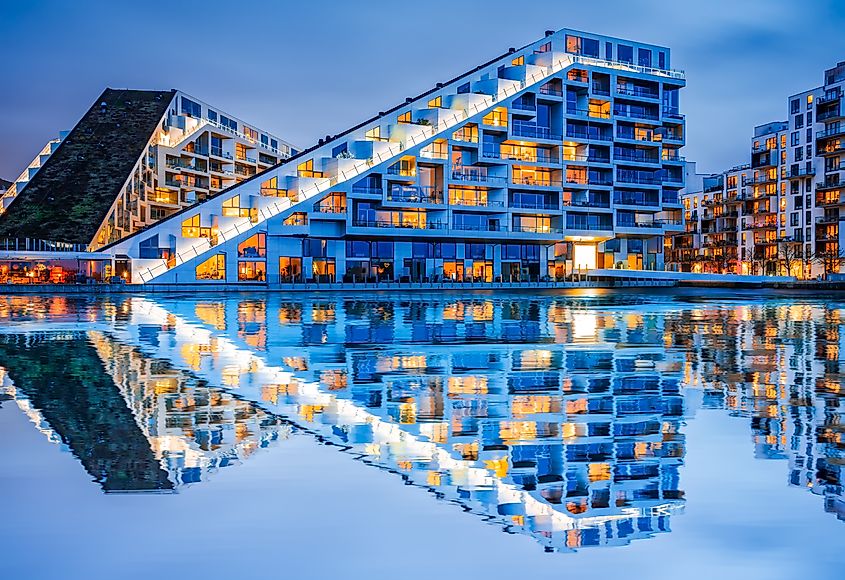
Denmark, holding a top-tier position in worldwide tech progress, flourishes due to its supportive environment, dependable resources, and forward-thinking attitude. The country's dedication to exploration and new ideas pushes technological leaps forward, especially in fields like green energy and biotechnology. For example, the Danish company Vestas is at the forefront of wind turbine technology, and companies like these are famous for proving there is profit in sustainable power production.
Traditionally, Denmark's collaborative spirit fosters teamwork and shared knowledge, driving tech progress. The country's all-encompassing welfare system guarantees high-quality learning for everyone, cultivating a capable labour force with a keen interest in technology. Additionally, Denmark's widespread connectivity and government backing for digitalization projects speed up tech adoption, forming a perfect setting for new ideas and expansion.
4. Switzerland

Switzerland, a frontrunner in technological progress, is characterized by a well-established tradition of education and advancement in science and technology. Home to top-tier research centers like ETH Zurich and EPFL, the country nurtures academic achievement, resulting in a technologically adept workforce. The Swiss government actively champions new ventures and research and development through supportive measures and financial backing, fostering a dynamic environment for entrepreneurs.
Demonstrations of Swiss technological capabilities can be seen in the Large Hadron Collider at CERN, progress in nanotechnology, and major pharmaceutical firms like Novartis and Roche. The country's history of political neutrality and stability has made it an appealing center for prominent international tech corporations, including Google and IBM, which have set up research facilities there.
5. Israel

Israel excels in technology due to its historical context, adaptable culture, and dedication to progress. The need for strong defense and efficient resource management has led to advancements in cybersecurity, water technologies, and agriculture. Israel created the Iron Dome defense system and has been a leader in drip irrigation for water conservation.
The government supports new businesses through funding, development programs, and partnerships with universities. The military's specialized Unit 8200 trains skilled tech experts, boosting the startup environment. Israeli companies like Mobileye and Waze are transforming transportation with self-driving cars and navigation technology. The country's thirst for knowledge and ability to adapt are key to its technological achievements.
6. Finland

Finland, a prominent figure in the technology world, stands out in fields like telecommunications, clean energy, and education. For instance, the Finnish company Nokia significantly changed mobile communication through its development of GSM and the use of mass-market adoption. Finland also leads in clean energy projects, utilizing sources like wind, solar, and bioenergy. The country's excellent education system focuses on technical and practical training so that its population can wield advanced tech skills.
Historically, Finland's remote location and small population meant it needed inventive ways to thrive, creating a focus on technology. The Finnish concept of "sisu," meaning strong will and resilience, pushes the country to surpass limits and adopt technological advancements. As a result, Finland consistently ranks high in economic innovation, an essential variable in creating a supportive environment for technology businesses and new ventures to grow.
7. The Netherlands
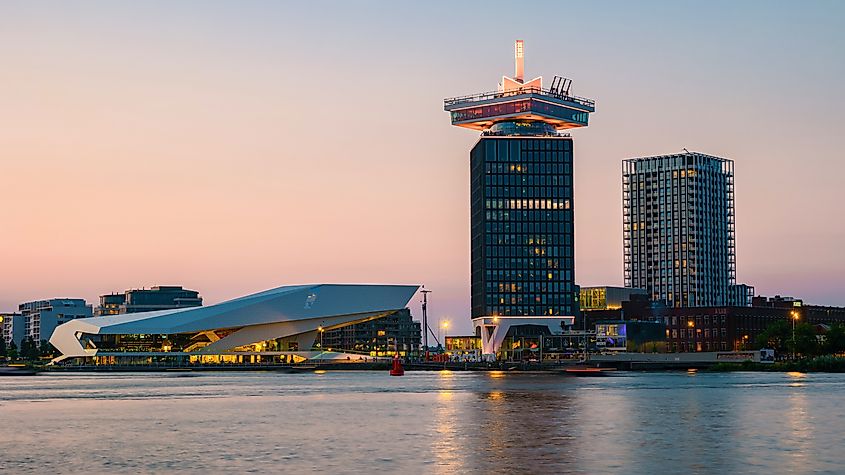
The Netherlands is a leader in technological advancement thanks to its creative spirit, top-tier education system, and tradition of trade. Internationally recognized companies such as ASML and Philips have greatly impacted technology worldwide, with ASML at the forefront of the semiconductor industry and Philips developing healthcare solutions.
Dutch education, including prestigious institutions like TU Delft and Eindhoven University of Technology, nurtures a highly skilled pool of talent. The country's historical trade connections have fostered a spirit of entrepreneurship and international cooperation, further strengthening the tech sector.
The country's extensive cycling network, the Amsterdam Internet Exchange (AMS-IX), and advanced water management techniques demonstrate Dutch technological prowess. This blend of creativity, education, and history positions the Netherlands as a leader in technological success.
8. Sweden
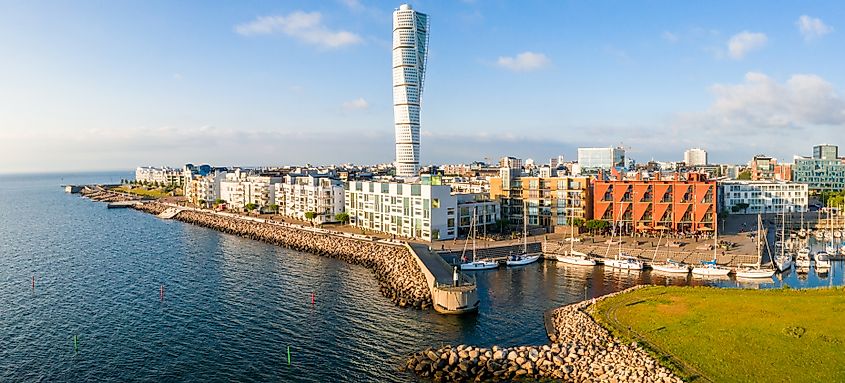
Sweden's technological status is deeply rooted in its excellent education system, supportive government policies, and entrepreneurial drive. This environment has nurtured internationally-recognized companies like Spotify and Ericsson. Culturally, swedes value collaboration and openness, which fosters a welcoming atmosphere for new ideas and progress.
Sweden's position as a tech leader is further solidified by its widespread high-speed internet and comprehensive digital infrastructure. The country has readily adopted digital payments, with most transactions now being performed cashless. Sustainability is a national priority, driving advancements in green technology, such as Northvolt's electric vehicle battery production.
Historically, Sweden's neutrality and focus on self-reliance spurred technological development. This is evident in their advanced (relative to the era) telecommunication systems created during World War II. This legacy of innovation continues to drive Swedish technology today.
9. Norway
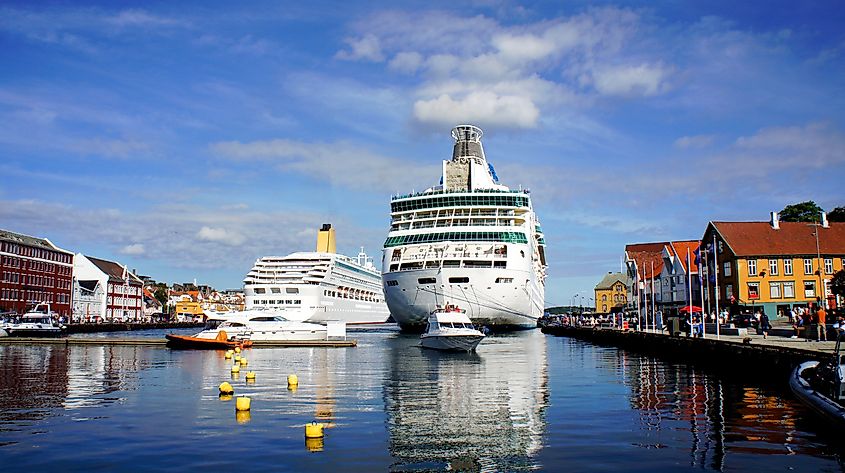
Norway's technological leadership is fueled by substantial investment in research, education, and sustainable practices. The country is a global model for green energy, with over 98% of its electricity generated from hydropower. Leading the way in electric vehicle adoption, Norway aims to eliminate emissions from all new car sales by 2025. Its ocean industries, including aquaculture and offshore wind, demonstrate advanced capabilities and a commitment to environmental responsibility.
After being forced to adapt to a challenging climate and terrain, Norwegians have cultivated generations of inventive problem-solving. The country's maritime heritage and vast coastline have nurtured expertise in shipbuilding and marine technologies. Moreover, its social democratic principles emphasize equal access to education, cultivating a highly skilled population and promoting technological intrigue. This blend of factors positions Norway as a country that continues to push the boundaries of tomorrow.
10. Singapore

Singapore's fast-paced progress is the product of a historically planned strategy on new ideas and a strong education system. As a small country without natural resources, Singapore places importance on technology to stay competitive on the world stage. The government puts a lot of money into research and development, pushing advancements in areas like biotechnology, AI, and financial technology. Some examples include the world's first self-driving taxis and the wide use of digital payments.
Singapore's system that rewards hard work encourages a strong drive and promotes learning throughout life. This way of life fosters interest in technology, with students doing well in STEM subjects. Also, the bilingual education approach makes international partnerships easier. Singapore's past as a trading center further helps global connections, opening the door for technology sharing and knowledge exchange.
11. The United Kingdom

In 2024, the United Kingdom has done well for itself in comparison to previous years. Companies such as AstraZeneca, Rolls-Royce, and DeepMind are at the forefront of this progress. AstraZeneca has made groundbreaking advancements in biotechnology and pharmaceuticals, including AI-driven drug discovery. Rolls-Royce has revolutionized the aerospace industry with cutting-edge hybrid-electric propulsion systems, enhancing sustainable air travel. DeepMind, a leader in artificial intelligence, has developed advanced AI algorithms that benefit numerous sectors, from robotics to biotechnology. Specific technologies driving the UK's advancement include 5G networks, quantum computing, renewable energy technologies, and autonomous vehicles.
12. Belgium
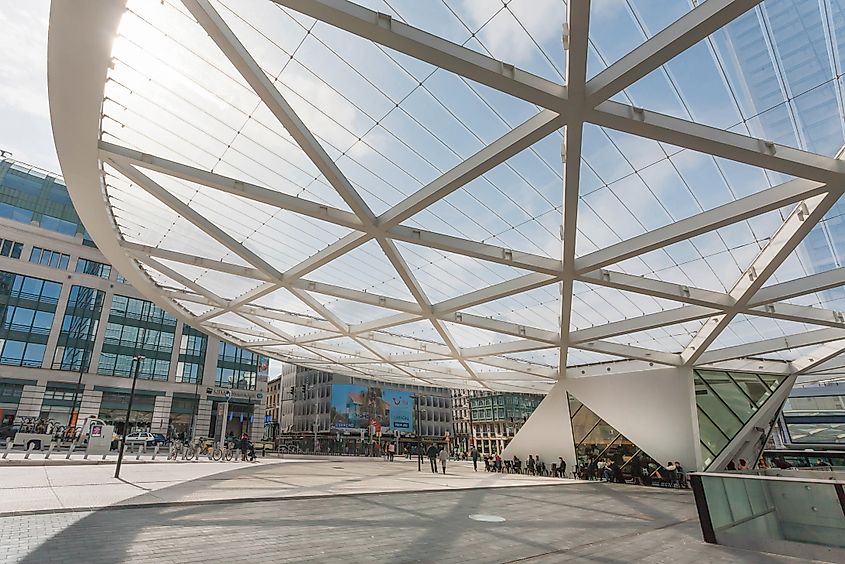
Belgium has worked hard to compete against the other 194 countries of the world, and one day it might reach even higher. Companies like Solvay in sustainable chemistry, Proximus in telecommunications, and Materialise in 3D printing have driven these developments.
Areas of investment for the Belgian government include cybersecurity, 5g and optic fiber, robotics and AI, and big data initiatives. Cloud computing also is a recent area of expansion, for Belgian banking, e-learning, and HR solutions across the country. Furthermore, with blockchain and renewable energy sources providing the wind to Belgium's sails, the future is promising.
Final Thoughts
These countries share a commitment to learning, scientific exploration, and the development of new ideas and technologies. They have leveraged their unique resources to build successful tech industries, creating economic opportunities and improving the lives of their people. Their focus on cultivating skills, encouraging partnerships between the public and private sectors, and adopting environmentally responsible practices has positioned them as leaders in technological progress. This friendly competition is a heartening reminder that progress is not limited to any one place, and that when we collaborate, we all benefit.











